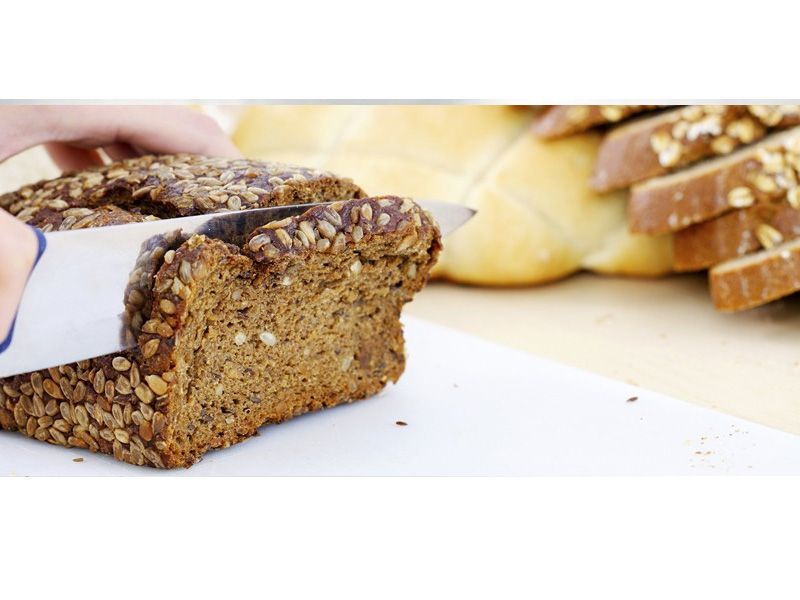We are an active engineering trading and stockiest in Indonesia.
- 021-58901302
- unggulpp@upp.co.id
Food Processing Plants
PLANTS - ZEPPELIN
Plants for the food industry
Food Processing Plants
Food industry
Food is our passion
No need to make any compromises especially in demanding tasks within the bakery, confectionery and baby food industries, but instead allow the leading experts to design and construct your system. Zeppelin is the market leader within the industry.
No other company can boast such extensive experience in the construction of modern systems within the food technology sector. Customers from the food industry especially appreciate our comprehensive know-how in all areas of handling raw materials: the receipt, storage, discharging, conveying, processing, metering, mixing and controlling of raw materials. We develop outstanding solutions in all areas.
Our range is impressive:
|
- Fresh baked goods |
- Cereals |
|
- Extended shelf-life baked goods |
- Finished mixes/baking additives |
|
- Pasta products |
- Spices |
|
- Confectionery |
- Instant beverages |
|
- Dairy products |
- Baby food |
Our solutions for solids and liquids
Raw material handling from A to Z
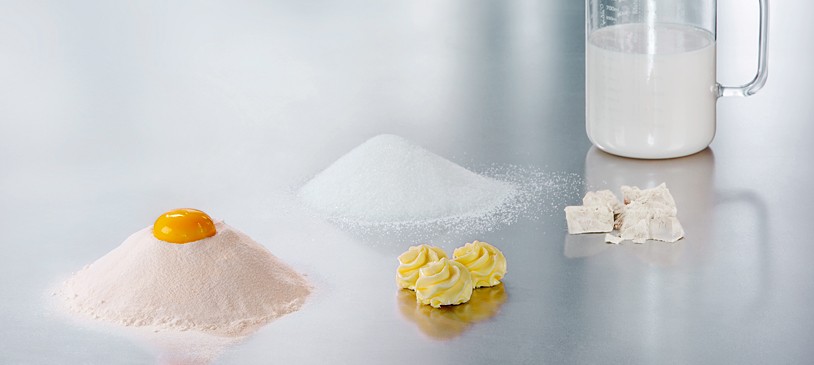
The whole range of solutions – from one single source
Receiving, storage, discharge, transport, treatment, dosing, mixing and control of raw material: we develop extraordinary solutions in all areas. This is why we are also the ideal partner for revamping – plant retrofit and modernization. All key components are from our own development and production and many are patented, which allows us to ensure reliable spare parts delivery for years to come. The excellent quality equipment is designed for continuous operation around the clock. It meets the industry’s strict hygiene standards and is designed to be easy to clean.
Sugar processing
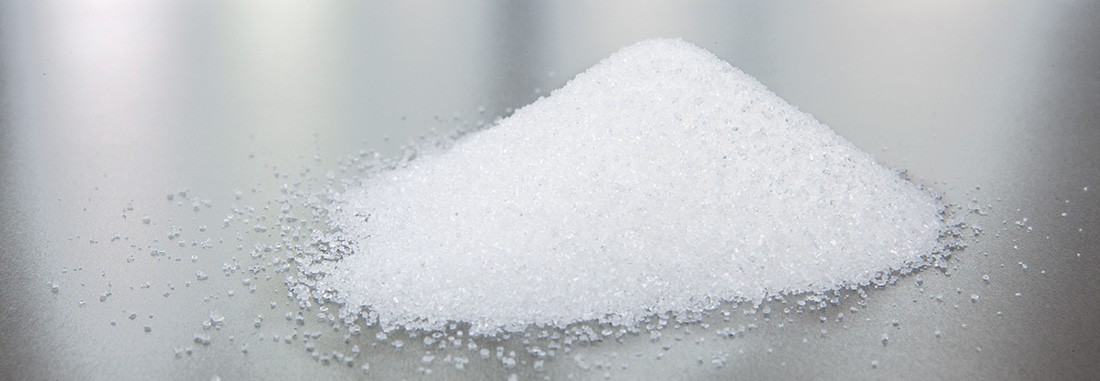
Technology that gets more out of sugar
Zeppelin's processing concepts cover all sugar processing forms and offer tailor-made solutions from storage and conveying, sugar grinding and recrystallization through to the charging of big bags.
Completely lump-free
Powdered sugar is obtained in many industrial operations by grinding granulated sugar. The formation of lumps is a well-known problem here that makes further processing difficult. Lumps in the confectionery industry, for example, interfere with the production of glazes and fillings. Small quantities of starch or other products are often added to the sugar to prevent these lumps.
We have developed a process that allows the production of pure, lump-free sugar without the addition of unwanted additives.
Our recrystallization process is solely based on air that is conditioned by temperature and humidity and together with the optimized movement of the agitator, we prevent the solid bridges in sugar that lead to the formation of lumps. The pure sugar with no additives that is treated in this way can also be stored in large silo units, discharged and processed without any lumps.
Fermentation
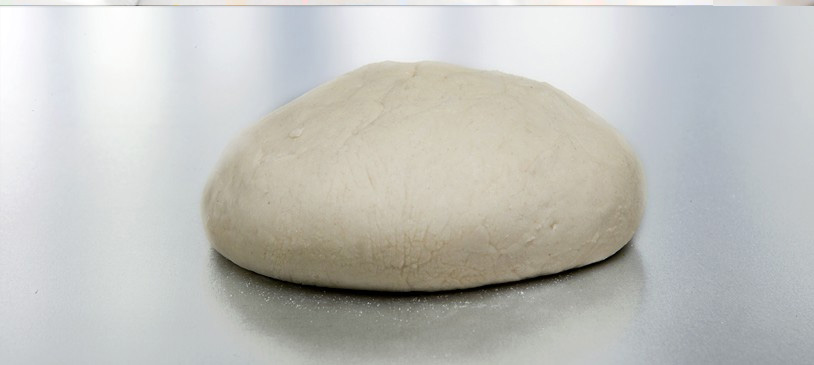
Biotechnology for better fresh baked goods
Fermentation reveals who is able to handle liquids. As the market leader, we have profound knowledge of the properties of viscous and compressible media. In pre-dough and sourdough production our customers can be sure that they will always obtain perfectly hygienic products of a consistently high quality thanks to our plant engineering.
Our complete portfolio for the user-friendly production of liquid sponge and sourdoughs:
- System control
- Storage containers for the precise dosing of raw materials according to the recipe
- Water mixing unit for mains water and hot water
- Agitator vessels for dissolved or liquid yeast
- Shear flow mixer ShearDos and DymoMix with short mixing times for lump-free dough production
- Fermenters / fermentation pipework
- Heat exchangers for cooling
- Storage tanks
- Automated cleaning of pipes and tanks
Liquid sponge production
The quality of wheat dough baked goods is determined by the raw materials and to a certain extent by the application of liquid sponge. The use of liquid sponge is essential in order to meet the increasing high quality standards of the consumer. By the use of liquid sponge a natural baking additive is developed that ensures that the baked goods have a crispy crust, taste more flavourful, remain fresh longer and have an extended shelf-life.
For the continuous production of liquid sponge water, wheat flour and yeast suspension are metered gravimetrically and volumetrically into the continuous mixer and immediately mixed together. A homogenous dough is produced already after a short time which is then pumped from the mixer to the fermentation tank. The “first-in, first-out” principle ensures a constantly high quality and freshness of the dough. When the fresh liquid sponge is pumped into the storage tank, the dough is cooled by travelling through a heat exchanger in order to halt the fermentation process. The liquid sponge is then ready to be taken for the production lines.
Decisive reasons for the use of liquid sponge:
- Presoaking of the flour constituents
- Kneadable dough
- Better processing qualities
- Natural fermentation
- Remains fresh longer
- Milder, well-balanced taste
- Soft, elastic crumb
- Higher dough-yield volume
- Reduction in the dough resting period
Sourdough production
Today, sourdough is not only used for rye flour. It is also produced with other types of grain, such as e.g. wheat and spelt in order to use the positive influence of sourdough on the baked goods. In the past and today, sourdough is prepared by a single- or multi-stage process in dough bowls and metered manually, which is a time-consuming and personnel-intensive process. This and the increased quality requirements led to the development of the automatic batch-wise and the continuous production of sourdough – these two processes provide numerous advantages. Which process is the right one for you depends on your requirements.
Continuous rye sourdough productionhis process basically works like the previously described continuous liquid sponge production. For the continuous production of sour dough, starter, water and flour are metered into the shear flow mixer ShearDos instead of metering yeast suspension. The starter is produced in a specially provided fermenter. If necessary, the sourdough is cooled down in a plate cooler to 5°C-15°C and prepared for the production in a storage tank. The fermentation time is 10 – 12 hours. The specific feature of this process is the fact that the equipment (ShearDos, fermentation tanks and storage tank) can be fitted with a WIP-functioning (washing in place), which meets the strict hygienic requirements of the food industry.
Batch-wise production
The sourdough production comprises the use of a flour mixture and the sourdough production in a single- or multi-stage preparation. The development of these two kinds of preparation is based on the consideration of a targeted increase of yeast or the generation of a specific acid with aroma. Flour is pneumatically conveyed into a holding hopper and is then metered by an adjustable conveying screw into the fermenter. Parallel to metering of flour, the mixing water is added. A constant comparison of the quantities metered ensures that the desired mixing ratio is observed. As a third raw material the starter is added. Afterwards, homogenous mixing of the raw materials in the fermenter and the hydration of the flour is carried out. The system allows to adjust several preparation stages with variable dough yield and temperature.
After a fermentation time of approx. 12 to 18 hours the finished sourdough can be cooled down in the double-walled fermenter to the desired storage temperature of approx. 15°C. Thus, the sourdough is available for a period of several hours at a constant quality. The double-walled and insulated stainless steel tanks fulfill the task of a fermenter and that of a storage tank. An intelligent electrical control system provides operator prompting and regulates the chronological and the technological fermentation process.
Decisive reasons for the use of sourdough:
- Baking of rye sourdough is possible
- Fluffiness and acidification of the dough
- Elastic crumb
- Better to slice
- Better aroma
- Well-balanced taste
- Bread remains fresh longer
- Extended shelf-life
- Saving of acidification agent and yeast
Automation
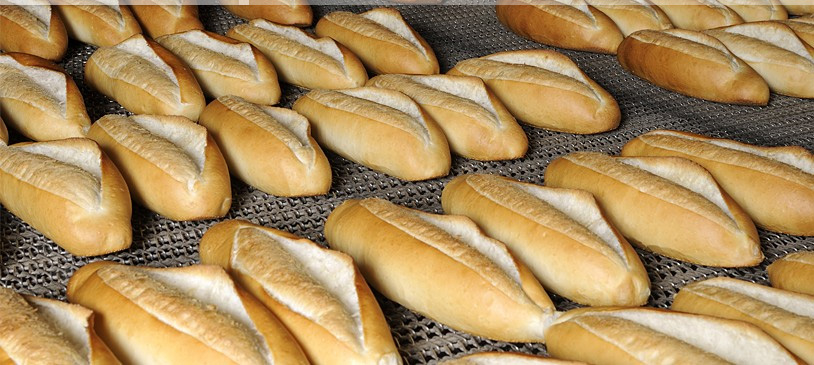
Industry 4.0
While in other branches transparent production processes in the sense of Industrie 4.0 have already reached a specific form, the baked goods production still lags behind. In this respect Zeppelin performs pioneering work. For example for the standardization of interfaces for the transfer of measuring data to a superior control system. We are in close cooperation with the Science Center Weihenstephan at the Technical University of Munich. For customers with various locations we are an innovative pioneer with respect to the integration of quality data on raw materials and final products into the process control for a benchmarking throughout the group.
Auditing support
The measuring data recorded do not only serve for quality control and assurance or process optimization but they can also facilitate – when properly prepared – the auditing at discounters or food retail companies. Also in this context the process management system PrismaWEB² is a valuable tool.
Tracing of batches
The traceability of batches is an absolute pre-requisite for the production of food with respect to the observation of hygiene and quality measures. With the process management system PrismaWEB² developed by Zeppelin you are on the safe side. Each modification of the recipe is recorded. All raw materials received and batches supplied can be traced. All production data, batch protocols etc. are filed and can be called up at any time. For an absolute safe traceability of raw materials and batches the PrismaWEB² also supports the use of barcode and RFID technology (RFID = Radio Frequency IDentification), i.e. systems for exact identification of raw materials and means of production.
Process management system PrismaWEB²
In all areas of the industry a consistent transparency of the production processes is a pre-requisite in order to be competitive on the market. With the web-based process management system PrismaWEB² there are no limits for modern production control systems. Because PrismaWEB² provides even more than ordinary standard systems and has in many areas the functionalities of a MES system (fabrication management system).
PrismaWEB² provides amongst others the component, recipe and warehouse management, production scheduling and traceability of batches.
The system is based on the latest net. Technology of Microsoft. The use of open standards such as HTML, XML, OPC and SQL enables the easy integration in existing IT infrastructures. A multi-phase production is no problem for PrismaWEB², pre-mixtures can be executed as a separate recipe or as a part of the main recipe and produced at an earlier point of time, whereas the total quantity respectively required can be determined by the system through the production scheduling.
All data recorded can be evaluated directly through a data base or provided for company control systems. Individual interfaces to the ERP system (e.g. SAP) are also possible.


